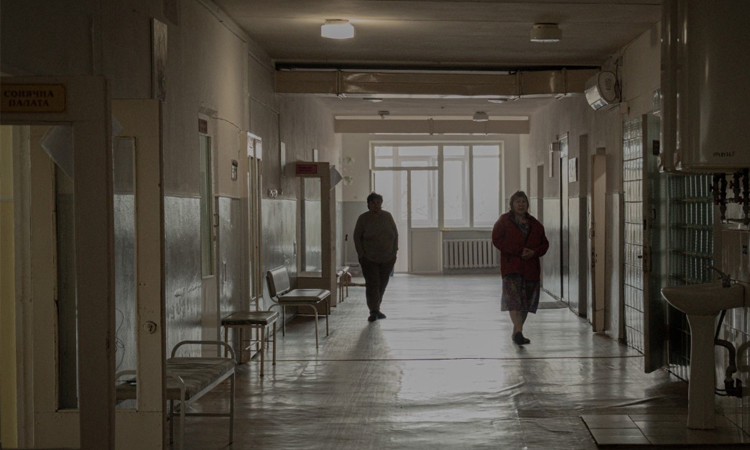News Flash

POLTAVA, Ukraine, April 16, 2025 (BSS/AFP) - When Russian drones and missiles pierce the skies above Ukraine at night and air defence begins to thunder, Olga Klimova plunges into a deep sleep -- far from her stay in a crowded psychiatric ward.
"I take my pills, I sleep deeply, I don't hear anything," the 44-year-old said, her giggle exposing missing teeth.
In her dreams, Klimova sees her village, Kyselivka, in the southern Kherson region.
She lived several months under Russian occupation in 2022, before Kyiv's forces retook Kherson.
Suffering from schizophrenia, Klimova was then evacuated hundreds of kilometres (miles) northwards, to a hospital in the central city of Poltava.
She has since been a patient in the Poltava Regional Psychiatric Hospital.
Klimova has not heard from her relatives back home -- many of them elderly -- since the start of the conflict.
"They know I am in Poltava. I am waiting for the end of the war to see them," she told AFP.
- New patients -
Kyiv has evacuated thousands of patients from psychiatric wards during the war, according to doctors AFP spoke to.
On top of existing patients, the fighting and devastation also generated a massive mental health crisis -- both among the military and civilian population.
The World Health Organization estimates that some 9.6 million Ukrainians are at risk of, or live with, a mental health problem -- almost a quarter of the country's pre-war population.
Already underfunded and depleted before 2022, the state psychiatric system is barely coping.
Oles Telyukov, a doctor at the main psychiatric hospital in Poltava, is overwhelmed by the crisis -- and expects it to worsen when the war ends.
His ward was supposed to host a maximum of 40 women, but in March there were 47.
- Medicine shortages -
Around 10 percent of the 712 patients at the hospital in mid-March were those displaced by fighting -- mostly from the war-battered Kherson, Donetsk, Lugansk and Kharkiv regions.
Among them were other evacuees from Kherson, like 47-year-old Olga Beketova, who also suffers from schizophrenia.
She recalled being left without vital medication for weeks in the Kherson region under the Russian occupation as a severe medicine shortage ensued.
She had a seizure at home in May 2022 and was taken to hospital in Kherson, before being moved to Poltava when Ukrainian forces retook the city in November that year.
Leaning on a walking stick, she told AFP she then had a stroke in 2024, which she blamed on "all the anxiety".
Amid a shortage of medicine -- mostly expensive and imported from abroad -- some foreign aid organisations have stepped in.
- Aid with medicine -
French doctor Christian Carrer founded the humanitarian group AICM, which helps Ukrainian clinics, including psychiatric hospitals.
He said he worried about the refugee patients and the system crumbling.
"It's complicated... There are patients who were ill before (the war) and those who fell ill after the start of the war because they suffered trauma," he told AFP.
In March, his NGO delivered epilepsy drugs, as well as supplies for treating seizures and schizophrenia to the Poltava hospital.
With resources dwindling, Ukrainian psychiatrists give their patients inappropriate sedatives to help them sleep, according to Carrer.
"We delivered products that diminish the effects of schizophrenia... but without numbing the patient," he said.
Russia's invasion had cut short Ukrainian plans to modernise its healthcare system.
A 2017 reform never reached psychiatric wards -- which retain much from the Soviet era.
- 'De-stigmatising' -
Doctor Telyukov recalled the chaos of patient evacuations in 2022, saying many arrived without personal belongings or documents.
A lot of people cannot speak about their trauma to their family or doctors.
"Those are the most difficult cases," he said.
Telyukov is also faced with a tsunami of disorders in the military.
He recounted treating a woman soldier traumatised by a September 2024 Russian bombing that killed 59 people, and another who was held in a Russian prison for six months.
He suspected the latter, also a woman, suffered sexual violence but said she "did not entirely" confide in him.
The rooms in his ward are named by colours, not numbers.
"It's to de-stigmatise, to get rid of bureaucracy," the psychiatrist said.
In the "pink" ward, Klimova sat in a crowded room, and waved goodbye to an AFP team.